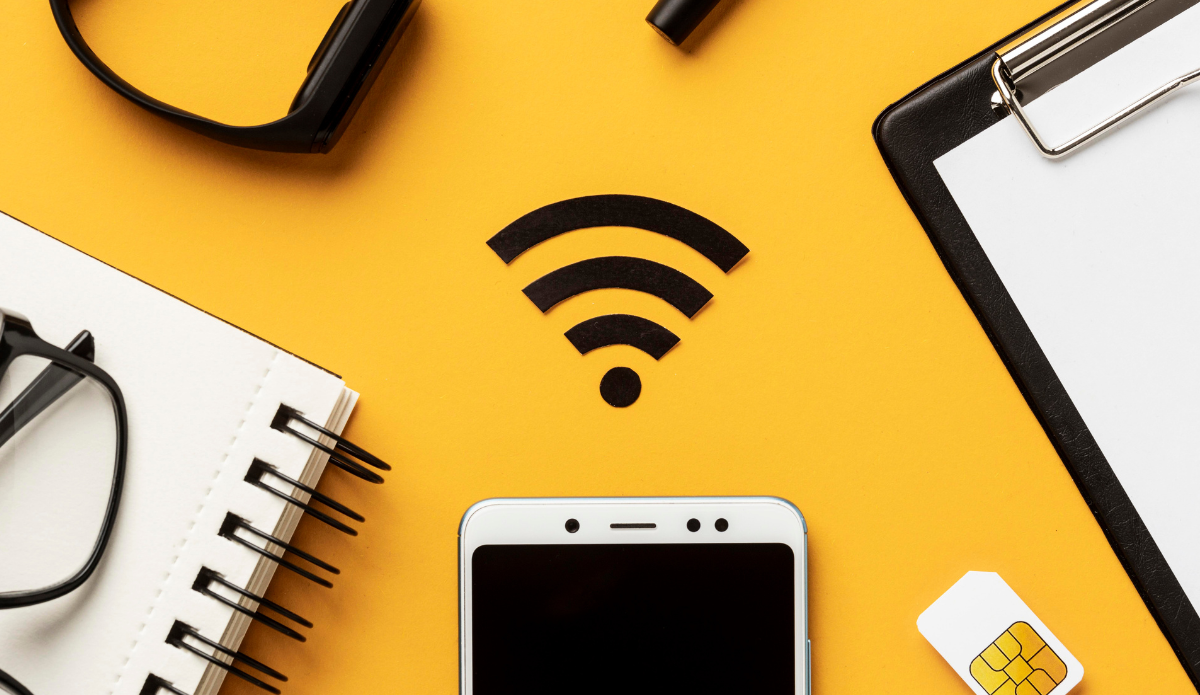4G or Fibre?
Don’t be fooled by the name – 4G broadband is very different to your traditional home Wi-Fi!
In some cases, it might be a better option for you.
We’ll explain all the how’s, what’s and why’s you might have.
What is 4G Broadband?
4G broadband is a cutting-edge internet connection.
It’s often used as an effective substitute for regular broadband, and we’ve explained why.
Unlike standard phone-line-based arrangements, 4G broadband frees you from the constraints of wire.
How?
By delivering a smooth internet connection to households over the omnipresent 4G mobile network that spans the majority of the UK.
Why Not Just Use Wi-Fi?
In some areas, internet suppliers have limited infrastructure.
This means that some homes simply can’t access faster broadband because they don’t have fibre optic cables installed in their area.
People living in more rural towns might also find that they have limited choice of suppliers and consequently fewer deals to pick from.
Whilst fibre coverage is expanding every day, lots of people are understandably looking for alternative Wi-Fi solutions.
How do I Access 4G Broadband?
You can connect to 4G broadband in a few ways.
Our experts have covered the main three ways below:
‘Tethering’ – The ‘tethering’ feature on your smartphone effectively turns it into a Wi-Fi hotspot. You will be able to connect a small number of gadgets and devices, but your usage will be limited. You might also notice that your mobile data is quickly eaten up when you do this, so it’s key to review your contract terms.
A Mobile Broadband ‘Dongle’ – A mobile broadband ‘dongle’ is a small gadget with 4G or 5G capability. It connects your devices using Wi-Fi or a USB to give you internet access. Compared to ‘tethering’, you can access more data and at a faster speed with a dongle.
A Dedicated Router – By using a dedicated router, you can connect more devices and handle more traffic than you can with tethering or dongles. Most large mobile networks offer this type of router, as it gives you a strong connection wherever you go.
What are the Benefits of 4G Broadband?
There’s a lot of important benefits to 4G broadband.
Our experts rate the top five perks to be:
- Reliable Speeds. 4G broadband is faster than the speeds you receive to your mobile phone, as it uses more advanced hardware. This is what makes it comparable to broadband, rather than mobile data signal.
- Widely Available. Because 4G is practically everywhere, it is an excellent choice for rural WiFi and other areas lacking cable infrastructure.
- No Fuss Set-up. Installation is quick and simple, requiring little to no setup.
- Portable. Certain routers can be transported with you when you travel, allowing them to deliver WiFi in a caravan, for example.
- Flexible Packages. You are not usually locked in long term with 4G broadband, as flexible packages are more readily available. One of our suppliers even offers a 30-day rolling contract.
Are There any Drawbacks of 4G Broadband?
Despite all the benefits, there are a few factors to consider.
- Limited Bandwidth and Speed: 4G networks can provide impressive speeds, but they still have limitations in terms of bandwidth compared to newer technologies like 5G. As more users connect to a 4G tower, the available bandwidth is shared, leading to potential slowdowns during peak usage times. This is especially the case in densely populated areas or during crowded events.
- Signal Interference: 4G signals can be affected by physical obstacles such as buildings and trees. Interference can lead to weaker signals and reduced network coverage, particularly in rural areas.
- Limited Coverage: We’ve already hinted at this one! While 4G coverage is widespread in many areas, it may not be available in more remote or rural locations. This is something we can help you identify.
- Data Caps and Throttling: Many 4G broadband plans come with data usage limits and may impose throttling or reduced speeds once those limits are reached. This can be a concern for heavy data users who rely on consistent high-speed connections.
- Security Concerns: 4G networks, like any wireless technology, can be vulnerable to security breaches. Unauthorized access to the network can pose risks to user privacy and data security.
What About 5G Broadband?
5G works the same as 4G – it’s just considerably faster!
5G broadband is still fairly new and therefore less widely available than 4G, but coverage is growing consistently.
Your supplier will let you know if you’re eligible for 5G, as this depends solely on their network.
It’s also worth noting that 5G is currently more expensive than 4G.
Should I Consider Getting a 4G Broadband Deal?
If you live in a rural area with limited internet availability, it could be a perfect solution for you.
4G and 5G broadband solutions are growing in popularity due to being flexible, fairly priced, and reliable.
However, if your area also struggles with flaky mobile signal, this could affect your service.
This is something our experts can help you decide.
Start searching for the latest deals in your area today and see which plan is best suited to you.
